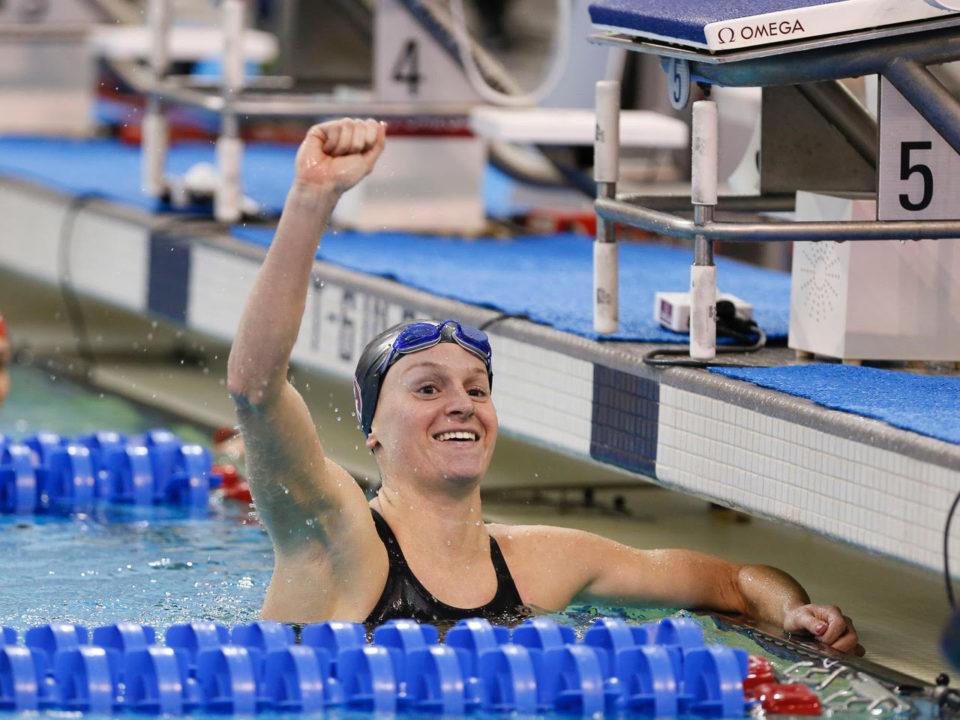Courtesy of Dr. Zachary Hojnacki
I have focused my research on understanding and remedying the phenomenon of choking under pressure in sports, particularly swimming. I want to see athletes perform to their best ability and overcome the performance hurdles they sometimes face in sports.
The internet is littered with quick tips and easy fixes to big problems. I don’t believe that there are fast or easy ways that sports psychology can improve athletic performance. Instead, I think that understanding and implementing sports psychology research findings in our daily lives can help us cultivate a healthier perspective on sports performance, and find more task enjoyment. If we can all do a little more of that, I believe the outcomes will follow.
With that being said, here are three not-so-quick tips to improve your mental game in swimming (and life!)
1. Use visualization
Mental imagery strengthens neural connections – in other words, it is another form of practice for your swimming movements! Consistent visualization will train your mind and body to know and expect only one possible outcome to your competitive performances so that when the moment comes, you need only to execute the movements the way you’ve practiced in your mind hundreds or thousands of times before.
Additionally, the human body is evolved to experience stress in unfamiliar circumstances (think fight or flight response, like a caveman running from a sabretooth tiger!) Visualizing relevant thoughts and experiences of future swim competitions helps those situations to feel more comfortable and familiar, which consequently permits you to keep calm and stay confident without eliminating facilitative adrenaline and focus created by the stress response.
2. Keep a log book
There are many factors that influence swimming outcomes in meets that are out of our control (school week, home life, growth and maturation, fatigue, environment, illness, etc.). Most athletes will go through periods of non-improvement in their competition performances, and that can be discouraging!
Keep a record of your workout accomplishments to help you measure progress even when your performance times are stagnant. Emphasize training improvements that will result in long-term gains (stroke count/efficiency, wall details, pacing times, attendance, nutrition, test set results, etc.). Acknowledging and appreciating your successes will help to keep you motivated and on course on your way to the next breakthrough!
3. Practice “attitude” with the same effort and consistency as physical practice
Attitude needs to be constantly honed much in the same way as physical skillsets. Three important mindsets will help you create mental strength in your swimming with practice:
1. Open-mindedness/acceptance
You will have daily challenging experiences in swimming – and in life – that are out of your control. You cannot always prevent these things from happening (nor do you always want to!). However, you can control your attitude about them. Practice acknowledging the negative or difficult things that happen in your life each day, followed by non-judgmental acceptance. This approach allows you to focus on what you can learn from the experience, rather than dwell on the disappointment or pain.
2. Grit
Grit, characterized by a commitment to long-term goals and perseverance through adversity, is shown in some educational research studies to predict academic performance better even than intelligence scores. When we fail, it is difficult to maintain motivation because failure suggests a flaw in the process. However, often times breakthrough success is preceded by numerous failures, as the adaptation process takes time to occur. Athletes who maintain positivity and look forward to future opportunities in the face of failure are often rewarded with hard-earned improvements when they are least expected.
3. Process vs outcome-oriented thinking
You cannot always control outcomes, but you can control the quality of your preparation. When we over-emphasize outcomes in sport, it becomes almost impossible to stay motivated and committed to a long-term process, which ultimately undermines the ability to generate consistency. A lack of consistency in any pursuit is a recipe for failure. An emphasis on process also allows athletes to enjoy each day, rather than view the day-to-day as merely a means to an end – a shallow and ultimately unfulfilling path. Direct your focus to the process and task enjoyment, and the outcomes will take care of themselves, while the process will be a lot more fun!
About Dr. Zachary Hojnacki
Zach the head age group coach for Ford Aquatics, and has a Ph.D. in Educational Psychology that he received from the U of A in 2017. He also swam for the U of A from 2009-2012 and competed at the 2012 Olympic Trials and 2013 World Championship Trials.

Dr. Zac is awesome! nice article
This is the best!